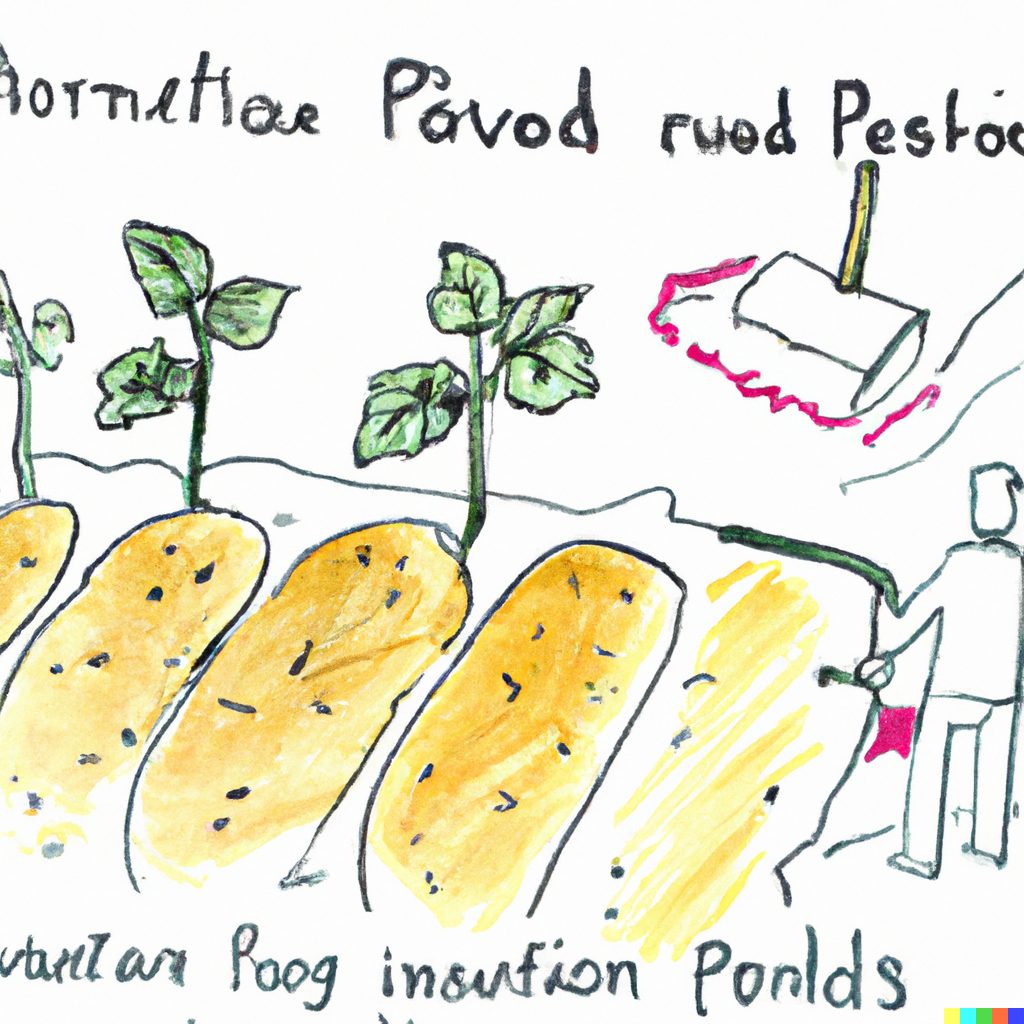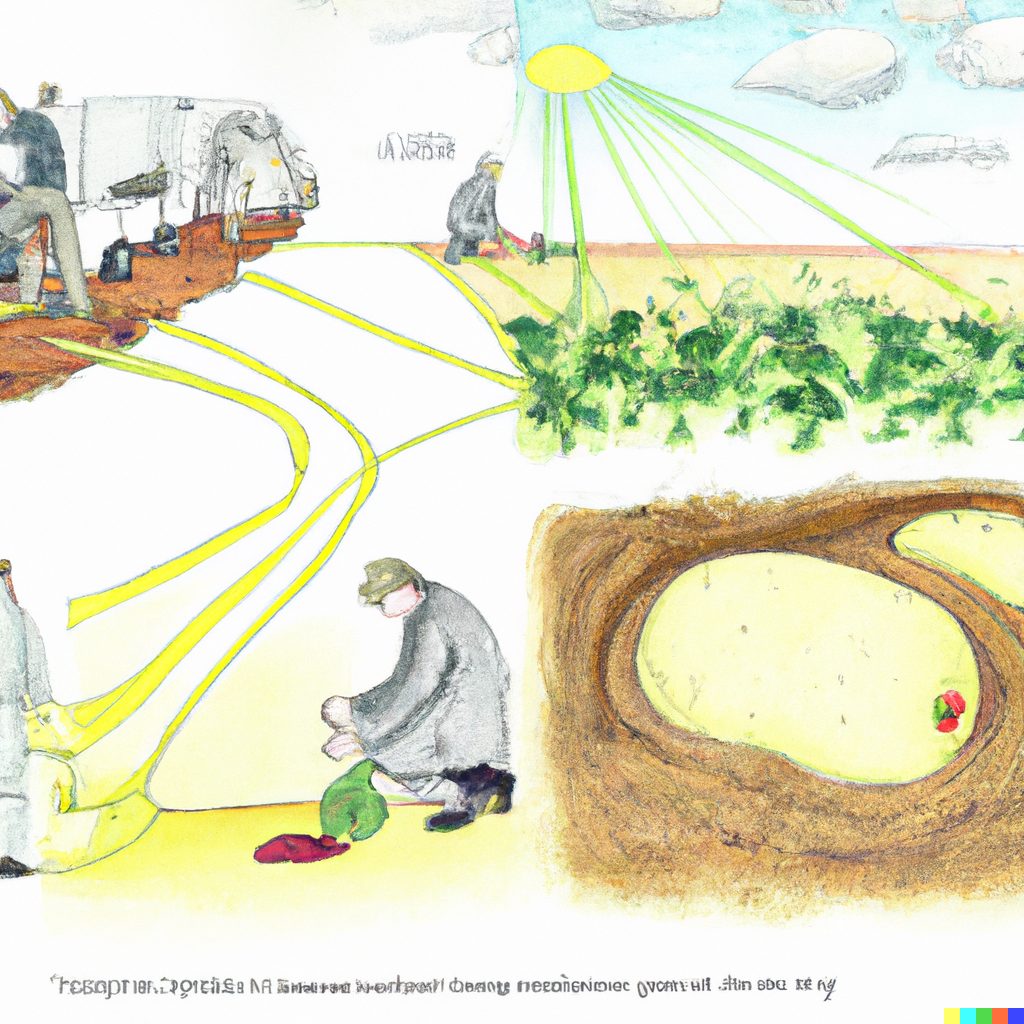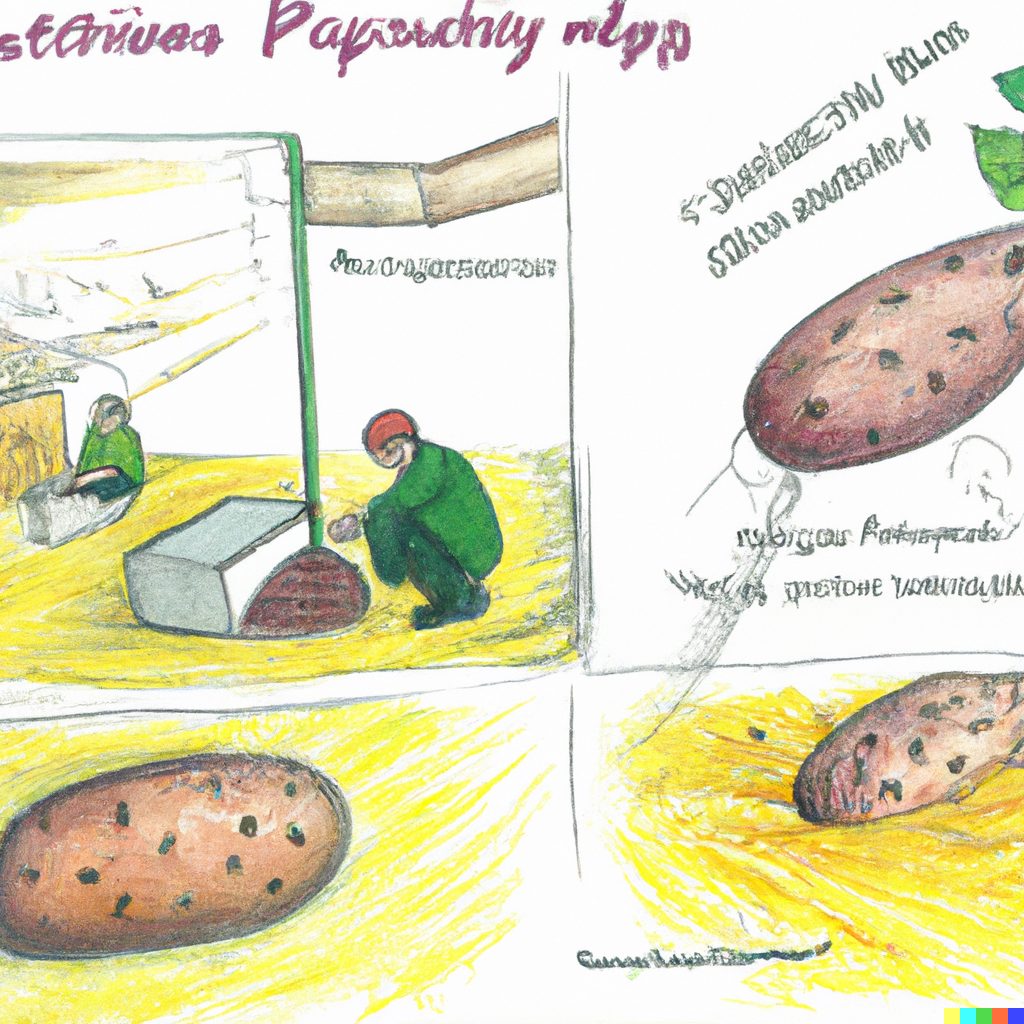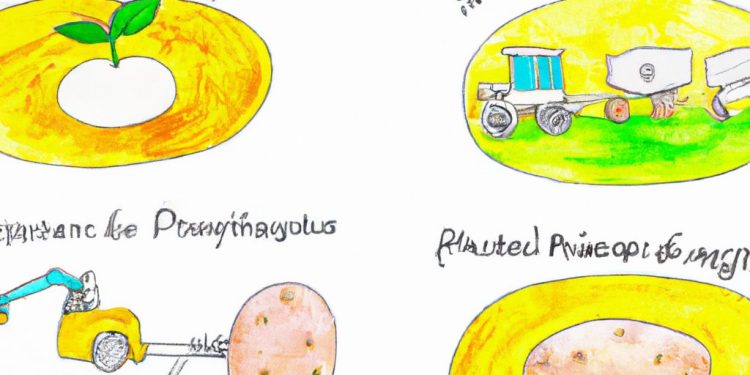#potatofarming #agriculture #sustainablefarming #climatechange #precisionagriculture #croprotation #integratedpestmanagement #technology #datadrivenagriculture #researchanddevelopment
Potatoes are one of the most important staple crops in the world, and the demand for them is only increasing. Farmers, agronomists, agricultural engineers, and scientists are constantly looking for new and innovative ways to improve potato farming practices to meet this demand. In this article, we will explore the latest data and trends in potato farming and discuss the challenges and opportunities that lie ahead.
According to recent data from the United Nations Food and Agriculture Organization (FAO), global potato production has been steadily increasing over the past decade. In 2020, the world produced over 388 million metric tons of potatoes, with China being the top producer, followed by India, Russia. While the growth in potato production is a positive sign, the potato industry faces several challenges.
One of the biggest challenges is climate change, which affects potato farming in many ways. Rising temperatures and changes in precipitation patterns can lead to water shortages and crop failures, while increased incidence of pests and diseases can cause significant damage to crops. To address these challenges, scientists and researchers are developing new potato varieties that are more resistant to pests and diseases and can withstand harsher environmental conditions.



Another challenge facing the potato industry is the need for sustainable farming practices. Traditional farming methods, such as excessive use of pesticides and fertilizers, can have negative impacts on the environment and human health. However, there are many innovative practices that can be adopted to reduce the environmental impact of potato farming, such as precision agriculture, crop rotation, and integrated pest management.
In addition to these challenges, there are also many exciting opportunities for the potato industry. For example, the rise of technology and data-driven agriculture is enabling farmers to make more informed decisions and optimize their crop yields. Innovations in storage and processing technologies are also improving the shelf life and quality of potato products, which is important for meeting the growing demand for high-quality and convenient food options.
In conclusion, the future of potato farming is both challenging and promising. By adopting innovative and sustainable farming practices, investing in research and development, and leveraging technology and data, the potato industry can continue to thrive and meet the growing demand for this important staple crop.#







